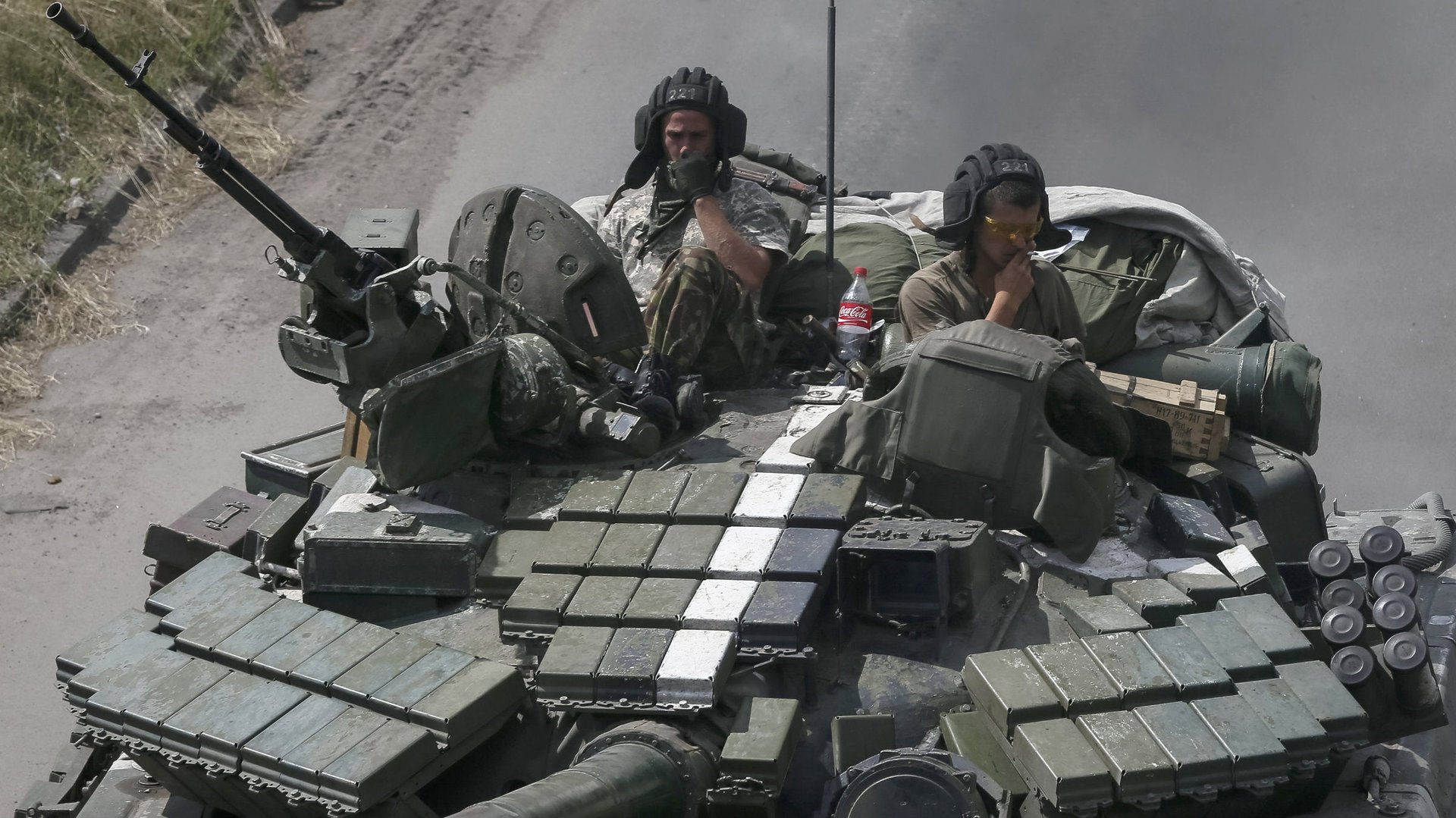Ukraine may defeat the rebels but that won’t solve most of its problems
At the moment it appears that, absent a direct Russian military intervention, the Ukrainian armed forces are on their way to victory over the motley collection of rebels who had seized large portions of the country’s east.


At the moment it appears that, absent a direct Russian military intervention, the Ukrainian armed forces are on their way to victory over the motley collection of rebels who had seized large portions of the country’s east.
There will likely be more deaths before everything is said and done. Just the other day 19 people died and 31 people were injured, and hundreds more have been killed since the violence began. The momentum of the conflict, which at one point seemed to lie with the Russian-backed rebels, has decisively shifted in Kyiv’s favor. The rebels’ most recent comments, accusing the Ukrainians of using chlorine gas, suggest a growing desperation, as do their ever more heated and extreme calls for Russian assistance. It looks as if Ukraine will escape one of the worst possible fates—a “frozen conflict” over a disputed territory, like those between Georgie and Russia or Armenia and Azerbaijan. Minus Crimea, it will be free of any enclaves directly controlled by Moscow.
It’s important, though, not to get too carried away. Even if, as now seems to be the case, Ukraine “wins” the war in the east, it’s in for a long, rough, and dangerous road. Regardless of what foreign policy Kyiv pursues or which agreements it signs with the European Union, there’s nothing that it can do to change Ukraine’s geographic position. And this position exposes it to all manner of direct and indirect Russian pressure, particularly in the economic realm.
I recently returned from two months of study in Moscow, and while the extreme politicization and radicalization of the state media isn’t immediately visible in daily life, you don’t need to scratch far beneath the surface to find seething anger at the Ukrainian government, with labels like “fascist” and “Nazi.” There’s a widespread and very genuine desire in Russian society to “punish” Ukraine both for its missteps in the East and for choosing the European Union over the Russian-backed Eurasian Union. At least some of this desire can be traced to the Russian state media’s slanted coverage, which has relentlessly portrayed Kyiv in the worst possible light, but it’s a mistake to think that it’s purely a contrivance of the Kremlin. While Russian television is heavily controlled, the print and internet media are much more open.
Russia’s political system is, obviously, not always receptive to public pressure. On this issue, though, which has inflamed the large and powerful community of Russian nationalists, I don’t think that the Kremlin will have any room for maneuver. It will likely yield to pressure to restrict imports from Ukraine (as it recently did from Poland), limit movement across the border, raise gas prices, and generally make life more difficult for the authorities in Kyiv.
Recall that before the current crisis started Russia was Ukraine’s largest single export market, absorbing roughly 33% of Ukrainian exports. Ukraine won’t be able to count on such large volumes in the near or medium terms. Given the nature of the goods being traded (mostly Soviet-style heavy industrial machinery and equipment) it’s even harder to imagine Ukraine finding other willing buyers.
Russian actions in Ukraine have been extraordinarily aggressive and, in certainly in the case of Crimea, blatantly illegal. Nonetheless, while Ukraine deserves a measure of Western diplomatic and political support, no one should underestimate the difficulty of the process on which it is embarking. The country has to fundamentally re-orient virtually its entire economy, and while the EU has offered it some $15 billion-worth over the coming years, for a country as big as Ukraine that isn’t much, especially compared with what the EU has promised other post-Communist reformers (though they are, admittedly, EU members).
Even with a military victory and a “European choice,” Ukraine’s future is likely one of economic misery and decline. While criticism of the Russians is justified, it should not blind us to Ukraine’s many problems.